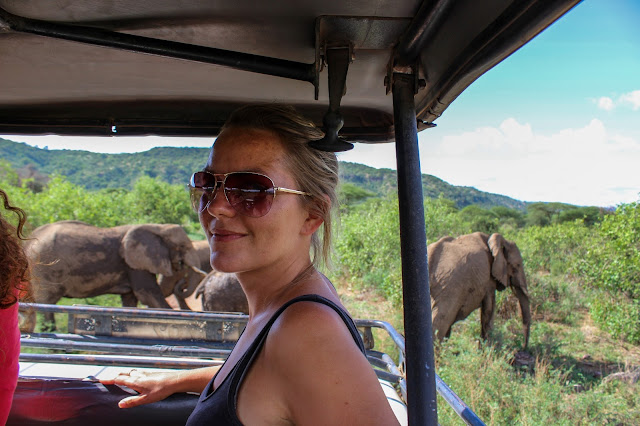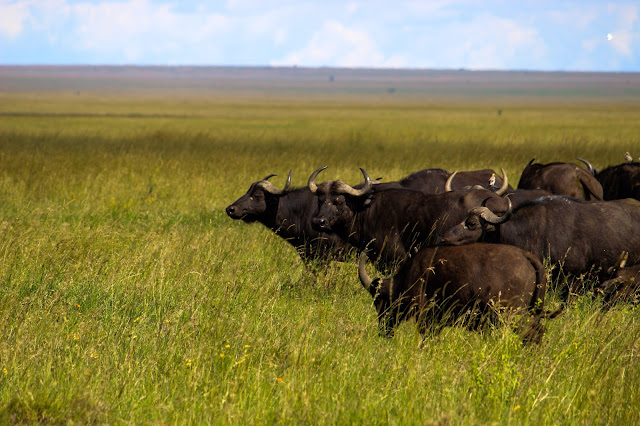
After
the monotony of East African cuisine, Addis Ababa sent our tastebuds into
convulsions. Colourful dollops of spicy wat on top of tangy injera, Spaghetti
piled impossibly high, mouth watering pizza dripping in cheese, freshly
squeezed mango juice, strong honey wine, served in glass vessels resembling
flower vases and piping hot macchiato, available at cafes every 5 steps or
less. After months of eating tough boiled meat with tasteless Ugali, Juho and I
were in food heaven.
Addis
is a chaotic city of more than 2.8 million people, and it seems to be ever
expanding, as half the city is under construction. I immediately felt very
underdressed as gorgeous specimens strutted past in 10 inch heels, immaculately
dressed as if they had stepped straight off the catwalks of Milano.
Beyond
the gates of Addis Ababa the country changes dramatically, gone are the flashy
clothes, replaced by faded robes, bare feet or cheap plastic sandals, and
donkeys laden down with heavy sacks. Three hours into our journey north to
Bahir Dar, our bus broke down on the side of a mountain. We sat outside and
marvelled at the view over the deep gorge and the Blue Nile River, which snakes
through the valleys on its way to the Red sea. This was enjoyable for the first
hour, but after 6 hours of sitting in the baking hot sun, not so much.
Eventually
the part we needed arrived and we were on our way again in the late afternoon
shadows. Creeping down the narrow mountain pass, our bus side swiped a truck and
lost the side mirror, leading to another lengthy delay as the bus driver had to
report to the police station to file a report.
We
arrived in Bahir Dar close to 11pm, and half the bus (including the poor driver)
piled exhausted into the closest hotel. Bahir Dar sits on the shores of Lake
Tana, which is the source of the Blue Nile River and home to island monasteries
from the late 16th century. Recovering from a bad cold brought on by
the cool climate change of Addis, and the traumatic bus journey, Juho and I
spent lazy days sitting on the balcony overlooking the wide, palm lines streets
that border Lake Tana.
From
Bahir Dar we travelled north to the ancient kingdom of Gonder. Bus rides in
Ethiopia are something else entirely; winding through fields and villages,
surrounded by crumbling rock fences, past shepherds tending to their flocks,
and donkeys transporting wares, you can’t help but feel like you have been
transported back to another age. In the Ethiopian countryside people live much
the same as they have for thousands of years, in the same kind of stone houses;
following traditional farming practices, preparing the same injera outside
their huts. To top things off buses here blare religious Amharic music at full
volume, making us feel as if we are living in a bizarre film clip.
Not
only does Ethiopia have its own language (Amharic) complete with a beautiful,
baffling script, but they also have their own calendar and concept of time. At
6am it is 12 o’clock, after one hour of sunshine it is 1 o’clock, and when sun
sets instead of being 6pm, it is once again 12 o’clock, pretty rational really,
but it does make it confusing when finding out what times buses leave. The
Ethiopian calendar ( based on the ancient Egyptian Coptic calendar) puts Ethiopia 7 and a half years behind, so I
have been transported back to my early 20’s and lets not even get in to how old
Juho is.
Gonder
castle, sits on a hill in the centre of the city, behind high stone walls. It
has a history to rival the drama of Game of Thrones. Gonder was a place of extreme
brutality and endless conspiracy, of queens, kings, ladies, lords and priests
all trying to undermine and overthrow each other. From the towers you can see
to all corners of the kingdom, and it is easy to imagine armies of horsemen
approaching in the distance.
Leaving
Gonder took us though the stunning Simien Mountains of jagged peaks, deep
valleys and soring eagles. Unfortunately it also took us down and up extremely
narrow mountain passes, along unsealed rocky roads, in an ancient bus, packed
with people and chickens. We arrived late in a one horse town south of Axum
where we bedded down for the night in a flea bag hotel for the grand price of
$5.
Aksum,
the Queen of Sheba’s capital, dates back to 400 BC and was the centre point of
a powerful empire which dominated the sea-borne trade between Africa and Asia.
Today Aksum’s secrets remain largely undiscovered, buried in tombs underneath
the ground, real Indiana Jones kinda stuff.














































